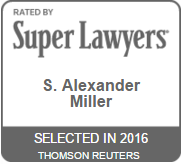FACTS:
A New York-based award-winning brand experience company sought assistance with securing a talented graphic designer to join their team. The company had worked with this talented individual from overseas, but wanted to bring this team member into the U.S. to work with the company in New York.
THE LAW:
One of the most common and helpful work visas available to certain eligible workers is the H1-B visa. To qualify for an H-1B visa, the job position must meet one of the following criteria to qualify as a specialty occupation:
- Bachelor’s or higher degree or its equivalent is normally the minimum entry requirement for the position
- The degree requirement for the job is common to the industry or the job is so complex or unique that it can be performed only by an individual with a degree
- The employer normally requires a degree or its equivalent for the position
- The nature of the specific duties is so specialized and complex that the knowledge required to perform the duties is usually associated with the attainment of a bachelor’s or higher degree.*
For the applicant to qualify to accept a job offer in a specialty occupation the applicant must meet one of the following criteria:
-
Have completed a U.S. bachelor’s or higher degree required by the specific specialty occupation from an accredited college or university
-
Hold a foreign degree that is the equivalent to a U.S. bachelor’s or higher degree in the specialty occupation
-
Hold an unrestricted state license, registration, or certification which authorizes you to fully practice the specialty occupation and be engaged in that specialty in the state of intended employment
-
Have education, training, or progressively responsible experience in the specialty that is equivalent to the completion of such a degree, and have recognition of expertise in the specialty through progressively responsible positions directly related to the specialty.
The H-1B visa has an annual numerical limit “cap” of 65,000 visas each fiscal year. The first 20,000 petitions filed on behalf of beneficiaries with a U.S. master’s degree or higher are exempt from the cap. Additionally, H-1B workers who are petitioned for or employed at an institution of higher education or its affiliated or related nonprofit entities or a nonprofit research organization, or a government research organization are not subject to this numerical cap. Because of the popularity of these visas, it is common for more applicants to seek a visa than there are visas available. Because of this, a “lottery” is frequently conducted to assign visas when there are too many applicants.
THE RESULT:
 Our office assisted the client to file a Form I-129, Petition for Alien Worker. It is essential to file this type of case on time (meaning April 1st) if the case is subject to the “cap.” As Requests for Evidence are increasingly common, our office helped the client navigate a challenge to the “Designer” position as a “specialty occupation” (one that meets the H1-B criteria described above).
Our office assisted the client to file a Form I-129, Petition for Alien Worker. It is essential to file this type of case on time (meaning April 1st) if the case is subject to the “cap.” As Requests for Evidence are increasingly common, our office helped the client navigate a challenge to the “Designer” position as a “specialty occupation” (one that meets the H1-B criteria described above).
After successfully overcoming this challenge, the H1-B was granted and the client’s visa approved.
DISCLAIMER: All Case Results published here depend on specific facts and legal issues unique to the case. It is impossible to guarantee any results.



